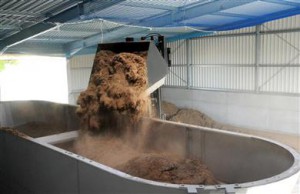Clariant has completed testing on more than 40 containers of sugarcane bagasse asnd tops and leaves from Brazil at its pilot facility in Germany on the feedstock conversion to cellulosic ethanol. The tests using the company’s sunliquid technology proved the cost per liter when including feedstock, conversion and depreciation produce a price competitive biofuel.
“The process integrated on-site enzyme production using feedstock specific enzymes for sugarcane residues delivers a competitive edge and enables our sunliquid technology to drive high yields and attractive OPEX economics for cellulosic ethanol production,” said Markus Rarbach, Head of Biofuels & Derivatives at Clariant. “In addition the advanced performance of our optimized enzymes allows us to use a chemical-free, mechanically lean and highly stable pre-treatment based on commercially proven equipment. Detailed hands-on process validation was always the key principle for our sunliquid development and with this approach we couldn’t have been more spot on. Our motto has always been ‘Keep it simple!’”
The performance runs at the pre-commercial plant in Straubing were conducted on multiple variations in composition (bulk and bale) and different qualities of sugarcane bagasse and straw. A yield of up to 300 Liters of ethanol per ton of dry bagasse was achieved and validated during extended performance runs. These tests constitute an important milestone for the realization of a commercial-scale project with sugarcane residues says the company.
Besides excellent yields on both C5 and C6 sugar conversion to cellulosic ethanol, Clariant says it was able to demonstrate its superior fermentation performance and stability. Some of the ethanol from the performance runs was shipped to Brazil and used in a commercial application, the details will be announced shortly.


